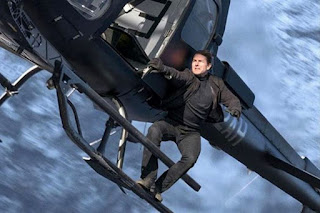"Ad Astra": Slow boat to Neptune
It would be an even more rewarding performance for audiences if the movie itself was something more. At times it seems like a science-fiction variation on Apocalypse Now, an episodic journey toward disaster, or one of those fat adventure novels that, having carried the reader along for hundreds of pages, abruptly wraps things up before a second volume is required.
The film, directed and co-written by James Gray, follows Roy McBride (Pitt), a military man and the son of a renowned astronaut (Tommy Lee Jones) believed to have died on a long-ago mission. When a series of bizarre energy surges threaten Earth, Roy learns that his father may not be dead and may be responsible for the surges.
With clues about his father's location near Neptune, Roy embarks on a cross-space mission to make contact with his father and possibly avert disaster. Like The Martian, Ad Astra acknowedges the great distances of space, the time it takes to cross them and the perils along the way, as Roy makes stops along his way to Neptune, encountering ever graver risks in his path. The journey climaxes in moving considerations of humanity and its struggles with science (foreshadowed earlier in Roy's trip) but by then anyone who longs for more than startling space-scapes is going to have had their patience stretched to the max. And the abruptness of the concluding scenes feels like a hasty admission that the audience has had enough.
Much the way First Man detailed the physical, even mortal, challenges of early space flight, Ad Astra is determined to get past conventions of many space dramas -- no warp speed here -- to explain how very difficult journeys to other worlds will be, and how much of a toll the long journeys may take on the travelers. Still, the good intentions do not get past the core problem of showing a long, slow journey: you don't want that to become a long, slow movie.


Comments
Post a Comment